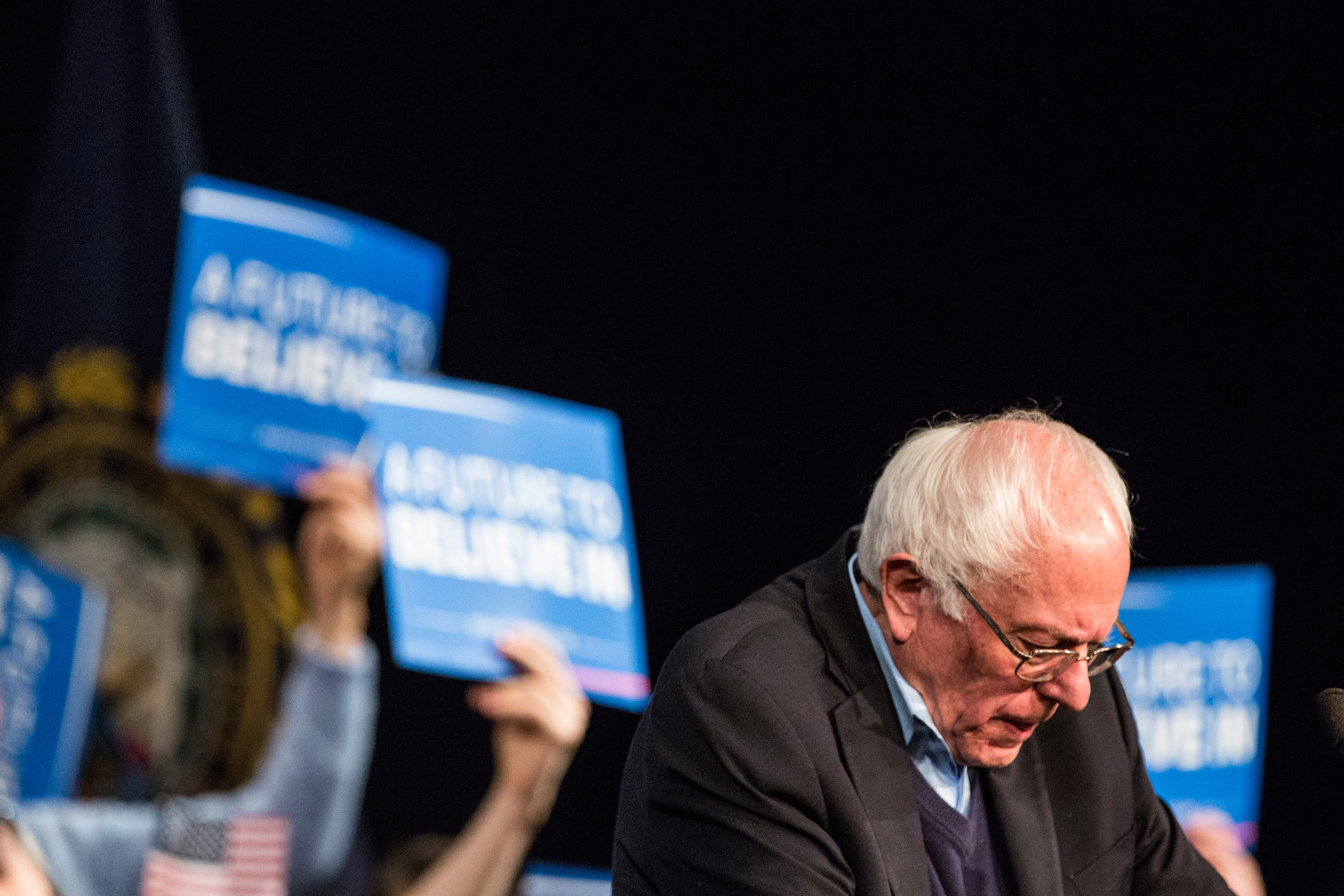Why isn't Bernie Sanders talking about jobs?
The 2016 candidate has been strangely silent about them


A free daily email with the biggest news stories of the day – and the best features from TheWeek.com
You are now subscribed
Your newsletter sign-up was successful
So what do you think should be the top priority for the next president? The Pew Research Center decided to ask voters that question recently, and got a pretty decisive answer: "Economy" and "terrorism" both tied for first place at 77 percent. Education was second place. And third? The "jobs situation" at 64 percent. And if you only talk to people who identify as lower class, "the jobs situation" jumps up to 71 percent, a strong second place.
Yet there's been a weird failure to focus on jobs in the 2016 presidential race. Donald Trump certainly goes at the issue of jobs, but mainly by promising how he's going to beat China and immigrants into submission to get them back. And the Republicans are a slow-rolling disaster on economics anyway. But the Democrats seem to have trouble getting a solid grip on the matter of job creation as well.
Bernie Sanders and Hillary Clinton do glance off it, talking about related issues like inequality, health care, education, Wall Street reform, and the like. But direct, extended digs into job creation are hard to find. "We rebuild our crumbling infrastructure, our roads, our bridges, our rail systems, we create 13 million jobs with a trillion-dollar investment," is about as extensive as Sanders has been at a debate. Ditto Clinton: "I have a plan to create new jobs, manufacturing, infrastructure, clean energy jobs that will make us the 21st century clean energy super power." Neither are exactly quoting white papers here.
The Week
Escape your echo chamber. Get the facts behind the news, plus analysis from multiple perspectives.

Sign up for The Week's Free Newsletters
From our morning news briefing to a weekly Good News Newsletter, get the best of The Week delivered directly to your inbox.
From our morning news briefing to a weekly Good News Newsletter, get the best of The Week delivered directly to your inbox.
Yes, the obvious counterpoint is that the official unemployment rate has dropped to 4.9 percent, down from 10 percent in October 2009. But the unemployment rate isn't terribly helpful for gauging the health of the economy. Other measures of labor market slack suggest an economy that's still a good long way from full employment. Wage growth and inflation growth are tepid. Unemployment for black Americans is still about 15 percent. As of early 2015, the unemployment rate for workers under age 25 (an age cohort that has flocked to Sanders in droves) was over 12 percent.
Sanders is particularly well-positioned to address all this head-on. His Rebuild America Act would drop $1 trillion on the economy — $200 billion every year for five years — to update the country's infrastructure. His proposals for debt-free college and a single-payer system would also by definition dump lots of money into the economy, while freeing up many Americans to spend their own income elsewhere, further boosting job growth. Sanders' proposals to hike the minimum wage to $15 an hour and to make the legal environment friendlier for labor unions certainly would help as well. But it's important to remember that government spending and investment in the economy is the specific, concrete thing that produces new economic activity, and drives the bottom-up pressure towards full employment.
All this is sitting right there in Sanders' campaign platform. In fact, one very, very optimistic forecast done outside the campaign says the entirety of Sanders' platform would create 26 million jobs, while driving unemployment to 3.8 percent. But even only a partial version of those results would be a massive boon for the country.
Yet so far Sanders has not focused on the failure to reach full employment with the same bulldog ferocity he brings to single-payer or inequality or breaking up the big banks. Nor has he really argued for his platform through this lens.
A free daily email with the biggest news stories of the day – and the best features from TheWeek.com
Part of it may be that the economy has recovered to a real degree, and that job anxiety has receded in the minds of the upper class voters who make up much of the primary electorate. But the deep wounds from the Great Recession are still healing, and, as evidenced by the Pew poll, there is still a lot of anxiety around jobs.
On top of that, the key to driving up the jobs supply is pumping more money into the economy through spending than you take out in taxes until you reach full employment. Sanders has been dogged by questions of how he'd pay for his proposals. But the answer he should bluntly give is he only intends to pay for some of them. Unfortunately, arguing for more deficit spending to increase jobs will require drop-kicking one of the central mainstream shibboleths of U.S. politics right off the stage.
For her part, Hillary Clinton has presented much more scaled-back versions of Sanders' arguments on infrastructure spending and job creation, while meticulously detailing how she would pay for them, so she's not as well positioned as Sanders to make the argument. This should really should be front-and-center in every one of Bernie Sanders' campaign speeches and debate performances.
Jeff Spross was the economics and business correspondent at TheWeek.com. He was previously a reporter at ThinkProgress.
